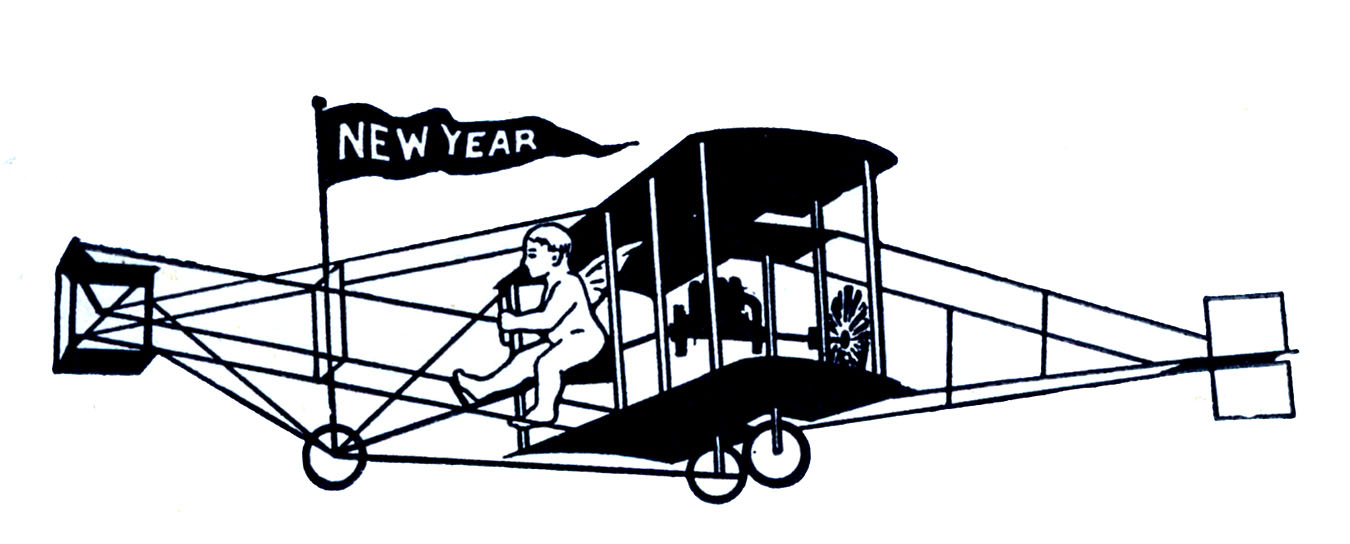
Happy New Year from the Stuck at the Airport team. Here’s to a great, safe year of travel in 2024.

Happy New Year from the Stuck at the Airport team. Here’s to a great, safe year of travel in 2024.

(This is a shortened version of a story we first wrote for NBC News)
This year’s post-pandemic travel boom is continuing into the holidays.
Nearly half (48%) of Americans plan to travel between Thanksgiving and mid-January, up from 31% last winter, a recent Deloitte survey found.
AAA expects 55.4 million travelers to venture at least 50 miles from home during the Thanksgiving period alone, a 2.3% increase from last year.
That means if you’re hitting the roads or the slopes this season, you’ll have lots of company. Here’s what to expect as you pack your bags for a winter getaway.
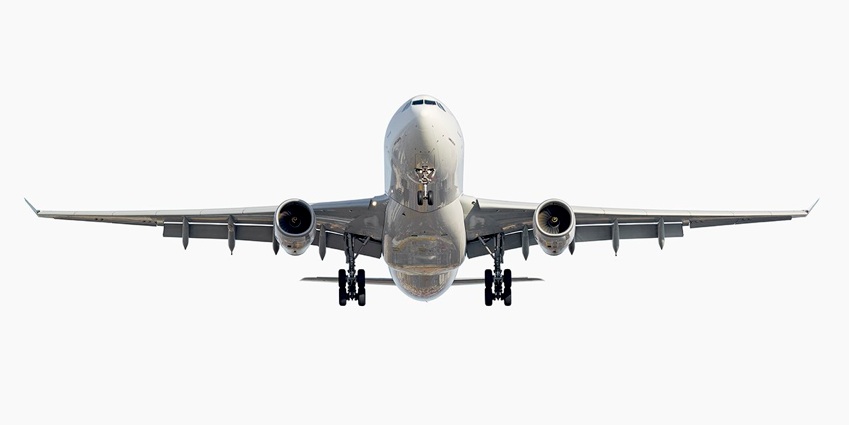
Airline ticket prices are falling even as more Americans intend to fly.
Deloitte found that 33% of holiday travelers plan to take a domestic flight, up from 29% last year. Despite the strong demand, airfares were more than 13% cheaper last month than at the same time a year ago, federal inflation data shows.
Smoother flights?
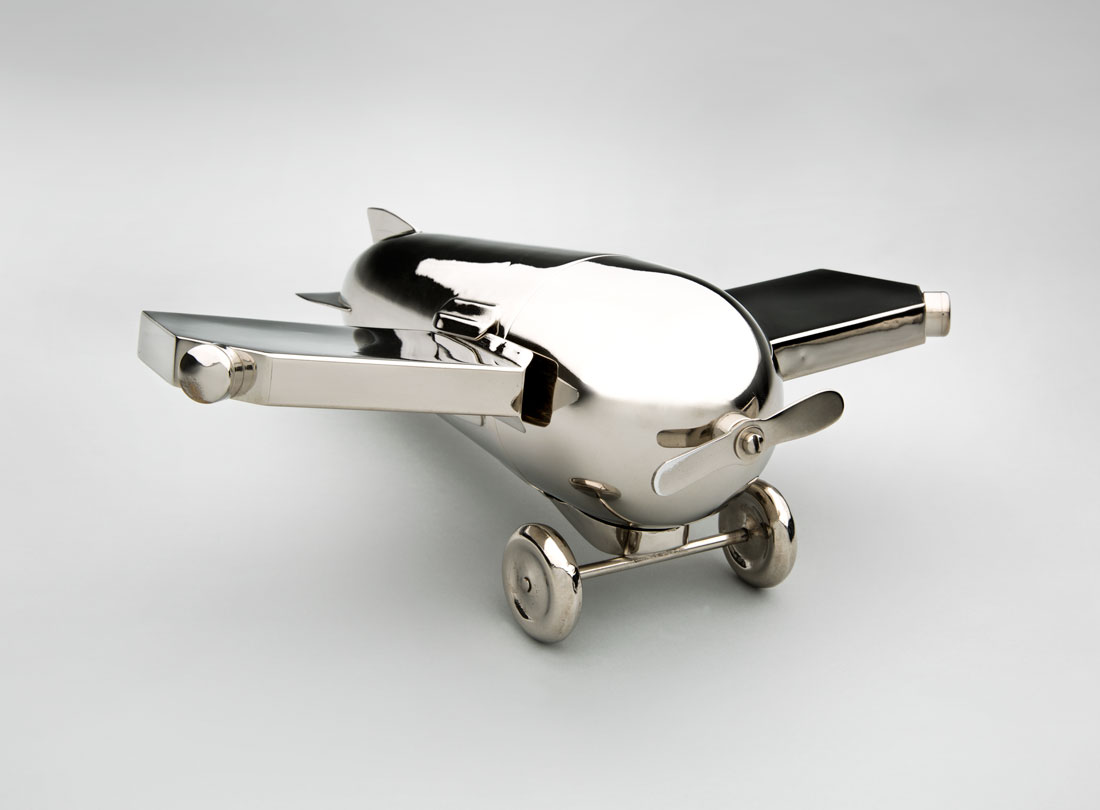
Airlines and aviation officials sound confident about handling the holiday crush. While major U.S. carriers — including American, Delta, and United — expect record passenger numbers this Thanksgiving, many are touting their readiness for the season.
Track records for flight cancellations and missing luggage have improved ahead of the holidays. About 1.7% of flights were canceled during the first eight months of this year. That’s much better than the 3.0% rate for the same eight-month period last year and 2.3% in the comparable stretch of 2019, the Department of Transportation reported.
And in August, the latest month with available data, the mishandled baggage rate dropped to 0.61% from 0.75% the month before.
A broader push to streamline and automate operations “will continue to help curb mishandling as we approach the holiday season,” said Nicole Hogg, head of baggage for SITA, an air transport IT company. But travel experts still suggest adding an AirTag or other digital tracking device to your luggage, especially during busy travel periods.
“Mother Nature will cause some number of cancellations, guaranteed,” said Scott Keyes, the founder of the airfare tracking site Going. But he noted that “cancellations caused by the airlines — the most galling for travelers — are at multiyear lows” and added that many carriers have bulked up on pilots, planes, and staff.
“The entire industry was snakebit from last year’s debacle,” Keyes said, “and airlines have adjusted their operations accordingly.”

More holiday travelers plan to stay in hotels this holiday season instead of bunking with friends or family. Deloitte found that 56% plan to stay in hotels, a sharp jump from 35% in 2022.
That could push up room rates, which were already 0.8% pricier in October than the year before.
Jan Freitag, director of hospitality analytics at the commercial real-estate research company CoStar, said this season’s strong travel numbers will likely nudge Christmastime room rates above last year’s levels. In the first full week of November, they were up 4% in the U.S. from the same week a year ago, averaging $156 per night, CoStar said.
Price-conscious Christmas travelers might want to “book early to lock in lower rates, shorten their trips or trade down to a different class of service,” said Freitag, or else take their chances with last-minute reservations. Inventories will be slimmer in the eleventh hour, but hotels may still cut prices on unsold rooms.
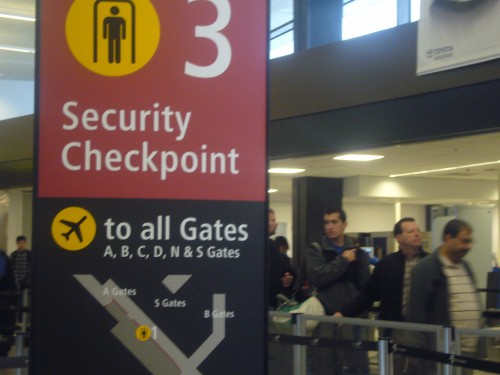
(This is a story we first reported for NBC News)
Last Thursday the State Department advised travelers from the U.S. to “exercise increased caution” worldwide because of the Israel-Hamas war, citing “the potential for terrorist attacks, demonstrations or violent actions against U.S. citizens and interests.”
The warning “means what it says,” said Jeffrey Price, an aviation security expert and professor of aviation and aerospace science at Metropolitan State University of Denver. “Don’t go to areas where they are actively capturing or killing U.S. citizens, and be careful when going to countries where you could be put in harm’s way simply by being there.”
But what about trips to Barcelona or Singapore or even just Baton Rouge? Here’s what to consider if you’ve got travel plans on the books or are making them now, given the conflict in the Middle East.
In addition to telling U.S. travelers to reconsider travel to Israel and the West Bank and to avoid any travel to Gaza, federal officials also recommend staying especially alert in popular locations anywhere tourists gather globally.
They suggest following State Department accounts on social media for updates and joining the Smart Traveler Enrollment Program [STEP] to make it easier for the agency to get in touch with American travelers abroad in case of emergencies.
The State Department has alerts of various levels in effect for many countries because of conflict and other risk factors, but “worldwide caution” advisories are less common. The last one was issued in August 2022 after a U.S. drone strike killed a high-level Al Qaeda leader.
Some national security experts regard last week’s global alert “as one of the most urgent issued in light of the extremely high tensions throughout the Middle East,” said Howard Stoffer, a professor of international affairs at the University of New Haven and a former senior official in the State Department’s Foreign Service.
“This type of alert usually lasts a relatively short time,” he said, but the current one “may last for some period of time.”
If you’re planning upcoming travel, you can monitor the State Department’s travel advisories for any destinations on your itinerary both before and during your trip. The Council on Foreign Relations, a nonpartisan think tank, also maintains an interactive Global Conflict Tracker that provides additional information for specific areas around the world.
Experts warn against slipping so deeply into vacation mode that you risk losing sight of potential shifts in the political or security situation on the ground.
“Be aware of your surroundings and be sure to cooperate with any increased security measures,” Price said.
Stoffer said, “Stay alert and listen to the news carefully when out there.” Otherwise, exercise the same good judgment you would under any other circumstances, like steering clear of major protests and making sure friends and family back home know where you are.
Israeli flag carrier El Al Airlines is the only airline that continues to fly between the U.S. and Israel, although its website notes that “there may be a change in the departure times of some flights.”
Major U.S.-based airlines that previously offered regular service to Tel Aviv, including American, Delta, and United, have issued travel alerts for the Middle East and suspended all flights to Israel.
United has also issued a travel alert for its flights to Amman, Jordan, but service there is continuing.
The suspensions include direct flights out of major hubs such as Atlanta, Boston, Chicago, New York City, San Francisco, and Washington, D.C., as well as connecting flights on partner airlines, said Scott Keyes of the flight deal website Going.
With Delta having already extended the dates of its rebooking provisions, Keyes said, “It’s all but certain other U.S. airlines will extend their travel waivers for at least as long as the escalated hostilities continue.”
At airports and other transportation hubs, “travelers can expect to see a larger law enforcement and canine presence,” said Robert Langston, a spokesperson for the Transportation Security Administration.
The TSA is operating at a “heightened level of security as a result of world events and the current threat environment,” he said. Officials there and at its parent agency, the Department of Homeland Security, will continue to monitor the situation and adjust their security measures as needed.
Security checkpoint lines at airports could get longer because of the increased measures, Price said, but “if things are getting out of hand, TSA can also speed up lines by reducing random checks.”
A handful of cruise lines have made changes to scheduled sailings in the Eastern Mediterranean and the Middle East, said Aaron Saunders, a senior editor at Cruise Critic.
“The changes range from the cancellation of full sailing seasons to adjustments to itineraries that remove select ports,” he said.
Windstar Cruises, Royal Caribbean, and MSC are among the cruise lines that have pulled all their ships out of the region because of the conflict, Cruise Critic has reported, while Norwegian Cruise Line has informed passengers on a coming Rome-to-Athens cruise that stops in Israel will be skipped.
“Cruise lines have teams dedicated to monitoring the latest news and updates and reserve the right to adjust their plans as they see most fit,” Saunders said.
He encourages anyone with a cruise reservation to watch for emails from the operator for updates on specific sailings, as well as any compensation being offered for significantly affected ones. For those considering a cruise to the region, “we strongly recommend purchasing travel insurance,” Saunders added.
Many travel insurance policies already provide cancellation and interruption benefits in the event a terrorist attack affects a trip, according to published guidelines from the travel insurance comparison platform SquareMouth.
But in most cases, those benefits kick in only for policies purchased before the date of the attack, meaning such coverage would apply for the current conflict only on insurance taken out on or before Oct. 6.
Travelers with coming trips to Israel who have cancellation and interruption benefits may be reimbursed for 100% of their trip expenses if they need to cancel, SquareMouth noted. Travelers planning to visit Israel as part of trips may also be covered if they need to cut their itineraries short.

(This is a story we first wrote for NBC News)
Ever check out of a hotel and notice a “transient occupancy tax” on your bill?
Unfortunately for your wallet, the Biden administration’s crackdown on “junk fees” won’t do anything about it.
But unlike some of the add-ons hoteliers and booking sites charge, this common type of tax doesn’t pad corporate margins, and the projects it funds are evolving in step with the post-pandemic tourist economy.
These levies — often known generically as “bed taxes,” though they go by many names — are imposed by state, county and local governments or tourism improvement districts.
They can drive up the cost of an overnight stay at hotels, motels, bed and breakfasts, campgrounds, and short-term rentals like Airbnbs, sometimes by up to 20%.
The jurisdictions typically decide how to allocate the revenue these taxes pull in. Sometimes they supplement governments’ operating budgets; other times they’re used to finance tourism campaigns, build convention centers, support cultural programs, or hire beach lifeguards.
But in Estes Park, Colorado, bed taxes are now subsidizing housing and childcare costs for local workers.

The mountain community, known as a base camp for adventures in Rocky Mountain National Park, voted for that move after a law Colorado enacted in March 2022 began allowing cities and counties to use hotel tax proceeds to cover housing and child care for the tourism-related workforce
In Estes Park, the decision came after advocates flagged a proliferation of second homes and short-term rentals that they said had strained affordability in the area.
Last November, the city raised its hotel bed tax to 5.5%, up from 2%, and earmarked funds from the increase — an estimated $5.3 million in 2023 — for the housing and child care initiatives, said Kara Franker, the CEO of Visit Estes Park, a local tourism group. That beefed-up bed tax now combines with town, county and state sales tax to add a cumulative 14.2% onto the cost of a nightly stay in the city, she said, helping to fund a range of public services alongside the new workforce-related initiatives.
According to Colorado tourism officials, at least 17 municipalities have imposed a new bed tax or modified an existing one over the past year, many of them putting the revenue toward new types of projects.
Similar moves are happening in tourism-heavy areas across the U.S., said John Lambeth, CEO of travel consultancy Civitas, reflecting a more expansive approach that is “more about stewardship of the destination and giving back to the community.”
Jack Johnson, chief advocacy officer for the travel industry group Destinations International, said the disruptions of the pandemic have motivated some communities to consider whether broader social and economic policies “can be tied to travel in tourism, either directly or indirectly, and therefore paid for out of the bed tax.”
Hotel taxes were first adopted in the U.S. by New York City in 1946, became commonplace nationally by the 1970s, and are what guests typically see itemized on their hotel bills today, said Elizabeth Strom, an associate professor at the University of South Florida’s school of public affairs. Public officials have long loved bed taxes because they generate easy-to-raise income from out-of-towners, not local voters.
“Every state either has such a tax at the state level or permits such a tax at the local level or both,” Strom said.
The newer breed of bed tax experiments, like those in Colorado, are being driven as much by windfalls from rebounding travel demand as by evolving civic attitudes.
Tourism revenues dipped sharply during the pandemic, but in 2023, hotel-generated state and local tax revenue — which includes bed taxes along with the other levies lodging operators contribute to government entities — is expected to reach $46.71 billion nationwide, up 13.6% from 2019, according to a study by the American Hotel and Lodging Association and Oxford Economics.
Bed taxes already account for nearly half of the hotel-generated taxes in the U.S., the AHLA said, and it expects bed taxes this year will likely exceed the $19 billion they generated in 2019.
In Florida, which has been hit by multiple hurricanes that affect beaches and islands, Broward, Collier, Lee and other counties are applying tourism revenues to rebuild and protect those travel assets, Johnson said. Bed taxes now contribute financing for dune restoration, shoreline stabilization, erosion control, and other coastal management activities, he said.
The shift has raised some concerns from the hospitality industry.
“In general, the more taxes states and cities levy on hotels, the more of a competitive disadvantage they create for local businesses, as potential hotel guests may seek out other destinations with lower tax burdens,” AHLA CEO Chip Rogers said.
As for the industry-imposed fees the Biden administration is scrutinizing, AHLA spokesperson Curt Cashour said that only 6% of hotels nationwide charge “a mandatory resort, destination or amenity fee, at an average of $26 per night,” adding that they “directly support hotel operations” like staff wages and benefits.
Cashour said the AHLA is continuing to work with authorities “to ensure that the same standards for fee display apply across the lodging booking ecosystem” so guests aren’t caught off guard.
Bed taxes may send extremely cost-conscious leisure and business travelers to lower-taxed destinations, Strom said, “but if you are a unique location, I don’t think an extra few dollars a night in taxes matters.”
“If people want to see the Space Needle,” she added, “they aren’t comparing the cost of rooms in Seattle to the cost of rooms in Portland.”
Some top tourist destinations say they aren’t worried about turning away tourists at the moment.

Hawaii, for example, is seeing a strong post-pandemic tourism recovery, even though its 13.3% state and county transient accommodation taxes combine with 4.5% excise taxes to add close to 18% to nightly hotel bills. State revenue forecasters expect Hawaii’s bed tax alone to bring in more than $785 million this year, up from $645 million last year.
Since drawing more tourists isn’t the main challenge, said Ilihia Gionson, a public affairs officer with the Hawaii Tourism Authority, the agency is using some of the funds it gets from hotel taxes to try to influence what types of visitors it attracts.
“The wheels were turning before the pandemic and accelerated during the pandemic,” he said. “We want visitors that align with our economic and community goals — who will shop at local businesses, eat in local restaurants, participate in ‘voluntourism’ and be mindful of their economic impact. So, it’s less about, ‘Come here,’ and more about, ‘Here’s who we are and what we’re about.’”
San Luis Obispo, along California’s Central Coast, is also earmarking some of its hotel tax income for projects that authorities hope will benefit the community.
Its existing transient occupancy tax supports the city’s general fund. But last year a new “Keys for Trees” program began setting aside some proceeds from the city’s tourism assessment tax — another government surcharge on hotel bills — to help plant 10,000 trees by 2035 as San Luis Obispo pursues its carbon neutral goals, said Tourism Manager Molly Cano.
The city’s business improvement district raised $1.6 million from this assessment pre-pandemic and $2.1 million in fiscal 2022, Cano said. Previously, all these funds were used to market San Luis Obispo to visitors. But now 1% of that revenue is steered toward the new program, with some $17,000 reserved for planting 35 trees this fiscal year.
“There’s no extra step to take,” Cano said, “and we think visitors will enjoy knowing that just by booking an overnight stay, they are helping to preserve the beauty of our community.”

Traveling with kids and want to make sure you get to sit together?
Airline seating policies and fees for choosing seats often make that a frustrating, sometimes impossible, and expensive undertaking.
President Biden ragged on airlines for this practice during his State of the Union address in early February
And in July the US Department of Transporation issued a notice encouraging US airlines “to do everything in their power to ensure that children who are age 13 or younger are seated next to an accompanying adult with no additional charge.”
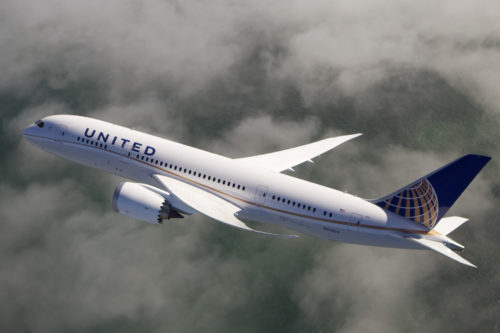
On Monday United Airlines announced a new plan to make it easier for parents and children under 12 years old to sit next to each other without paying an extra fee. That includes passengers who purchase Basic Economy Tickets,
The airline said the policy will extend to customers who purchase Basic Economy tickets. That category usually doesn’t allow seats to be assigned until boarding.
United says a new seat map feature that finds available adjacent seats at the time of booking makes this new policy possible. The seat map program will first review all available free Economy seats and then opens complimentary upgrades to available Preferred seats if needed, according to United.
Other airlines may follow suit by adjusting their policies to follow United’s lead.
For now, Delta Air Lines’ website says the carrier “strives to seat family members together upon request” and urges passengers who can’t find seats together to contact Reservations for help.
American Airlines’ website says”if you’re unable to choose seats, don’t want to pay for seats, or chose a Basic Economy fare, our system will detect that you’re a family traveling. The system will search for seats together automatically before the day of departure. We’ll try our best to keep you together, but if seats are limited, we’ll assign seats so children under 15 are next to at least 1 adult.”
Alaska Airlines’ site states that “if are unable to obtain seat assignments together for your family, we will make every effort to seat at least one adult with any young child (age 13 and under) from the same party.”
Like other carriers, JetBlue’s statement on family seating urges families to book early. But says “if seats together are not available, please let our airport gate crewmembers know when you arrive at the airport. They will do their best to find a seating solution. We cannot guarantee that seats together will always be available.”